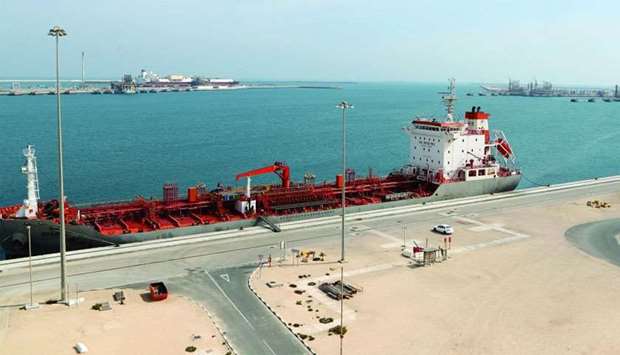Higher gas prices, North Field production boost Qatar account surplus: World Bank

Qatar’s current account surplus increased to 8.7% in third quarter of 2018, from less than 4% in 2017 due to higher gas prices and production from the North Field, the country’s biggest gas repository, according to the World Bank.
Qatar, the largest LNG exporter globally, had seen its goods export earnings rose by 25% in 2018, World Bank has said in its recent “Economic Update.”
The country’s public finances have improved, supported by the recovery in energy prices, and Qatar is expected to post a small fiscal surplus in 2018, the first since 2014. A large public investment programme for 2014-2024 has been pared back, with FIFA 2022 projects given priority.
Qatar’s withdrawal from the Organisation of the Petroleum Exporting Countries (Opec) in January 2019, after six decades of membership, has not had a major impact since Qatar was one of the smallest members of the group, making up less than 2% of Opec’s total oil production, World Bank noted.
The World Bank said Qatar’s “outlook remains positive” with growth expected to rise to 3.4% by 2021 driven by higher service sector growth as the FIFA World Cup draws nearer. In addition, higher infrastructure spending on the Qatar National Vision 2030 projects aimed at diversifying the economy should help offset falling investment spending on FIFA projects.
The hydrocarbon sector growth is also expected to pick up as the Barzan natural gas facility comes online in 2020, and as the expansion of the North Field gas projects is completed by 2024. Monetary policy is expected to gradually tighten as the Qatar Central Bank resumes raising interest rates to restore the spread versus US policy rates, and to attract FX inflows into the banking system. Public finances are expected to remain in small surplus, supported by recent tax reforms and the introduction of a VAT over the medium term, the World Bank said.
A recovery in imports, driven by capital goods related to infrastructure spending, should keep the current account surplus in single-digits (in contrast to surpluses of over 30% prior to 2014).
Qatar’s economy has largely overcome the constraints posed by the “continuing diplomatic rift” with GCC (Gulf Co-operation Council) neighbours, the report noted.
“Nevertheless, a resolution of this situation would help boost investor confidence. Key external risks include risks of volatility in global energy prices, regional instability risks, and global financial volatility that affects capital flows and costs of funding although these are mitigated by the return to fiscal and current account surpluses,” the World Bank said.